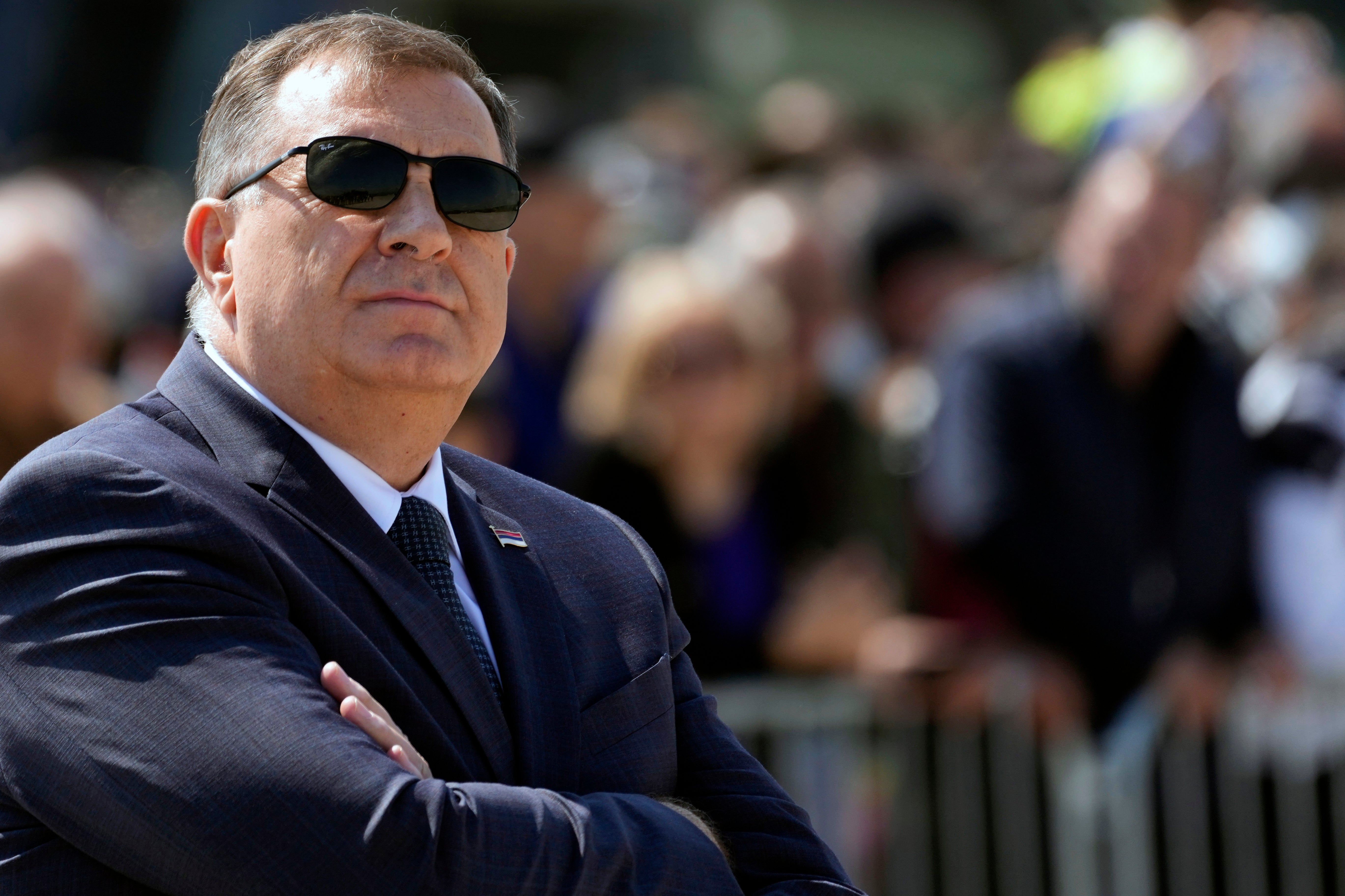Putin meets Bosnian Serb separatist leader, praises Serbia
Bosnian Serb separatist leader Milorad Dodik has met with Russian President Vladimir Putin in Moscow

Your support helps us to tell the story
From reproductive rights to climate change to Big Tech, The Independent is on the ground when the story is developing. Whether it's investigating the financials of Elon Musk's pro-Trump PAC or producing our latest documentary, 'The A Word', which shines a light on the American women fighting for reproductive rights, we know how important it is to parse out the facts from the messaging.
At such a critical moment in US history, we need reporters on the ground. Your donation allows us to keep sending journalists to speak to both sides of the story.
The Independent is trusted by Americans across the entire political spectrum. And unlike many other quality news outlets, we choose not to lock Americans out of our reporting and analysis with paywalls. We believe quality journalism should be available to everyone, paid for by those who can afford it.
Your support makes all the difference.Bosnian Serb separatist leader Milorad Dodik met with Russian President Vladimir Putin in Moscow on Tuesday days after he endorsed Moscow's aggression against Ukraine, Russian and Serbian media reported.
During a rare visit to Moscow by a politician from Europe, the Russian president praised his country's “strategic partnership” with Serbia.
The visit came amid repeated warnings from the European Union that Serbia must align its foreign policies with the bloc if it really wants to become a member.
Dodik, a Serb member of Bosnia’s tripartite presidency, has frequently met with Putin, especially ahead of elections when he wants to show to the highly pro-Russian Bosnian Serb electorate that he has Putin's support. Dodik last met Putin in June, months after Russia's invasion of Ukraine in February.
Moscow has often been accused by the West of seeking to destabilize Bosnia and the rest of the Balkans through its proxies in Serbia and Bosnia. Dodik has openly advocated tearing away the Serb-controlled half of Bosnia from a Bosniak-Croat federation and joining it up with neighboring Serbia.
A U.S.-brokered peace deal in 1995 ended a war in Bosnia that left at least 100,000 people dead and millions homeless, but left the country deeply divided between its three main ethnic groups. Moscow has been exploiting the divisions by tacitly supporting Dodik's separatist policies.
On the eve of his visit to Moscow, Dodik gave an interview to Russia’s state TASS news agency where he repeated his separatist views but also added his endorsement of Russia's invasion of Ukraine.
“For many years the West did not react to the extermination of the Russian population in Ukraine, there were daily murders and bombings in Donbas,” Dodik claimed in the interview, referring to the separatist pro-Russian region in eastern Ukraine. “All this was clear, and Russia was forced to retaliate.”
Putin also sent a separate message to Serbia and its populist President Aleksandar Vucic on Tuesday. Serbia is the only nation seeking EU membership that has refused to join Western sanctions against Russia over its war in Ukraine.
“Russia and Serbia are linked by a strategic partnership,” Putin said, according to the Serbian media. “I regularly talk to President Vucic during personal meetings and telephone conversations about key issues for the further development of the cooperation.”
Although officially seeking EU membership, Serbia has during Vucic’s 10-year autocratic rule slid ever closer to Russia under Putin.
Vucic is in New York for the U.N. General Assembly session, where he says he intends to send a message that Serbia has, under international law, the same rights to fight against the independence of its separatist former province of Kosovo as Ukraine has for those regions occupied by pro-Moscow separatists.
Kosovo, where ethnic Albanians represent more than 90% percent of the population, declared independence from Serbia in 2008, nearly 10 years after NATO intervened to stop a bloody Serb carnage against independence-seeking Kosovo Albanians.